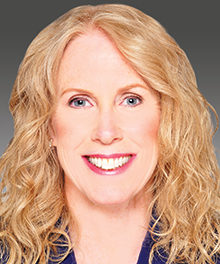Janis Cowhey, Tax & Business Services Partner, Quoted in Associated Press Article "Gay Couples Could See Windfalls From Court Action"
Associated Press
By Lisa Leff
Excerpt:
For Mina Meyer and Sharon Raphael, two women in their 70s who fell in love more than four decades ago and have been married for more than four years, the U.S. Supreme Court’s pending consideration of a law that prohibits the federal government from recognizing unions like theirs is about more than civil rights. It’s about buying a new roof for their California home, replacing their 2005 Toyota Camry, and ensuring Meyer doesn’t take a financial hit if Raphael dies first.
The Supreme Court will hear oral arguments this month in a challenge to a provision of the Defense of Marriage Act, or DOMA, that denies legally married gay and lesbian couples federal benefits available to heterosexual married couples, including tax and Social Security benefits. A decision is not expected until the end of June, but accountants and tax attorneys anticipating the 18-year-old law’s demise are already encouraging same-sex couples like Raphael and Meyer to seek prospective tax refunds, back retirement payments and other spousal subsidies they may have been denied.
It is unclear how the justices might rule, but the Obama administration and former President Bill Clinton, who signed the act into law, have urged the court to overturn it on grounds that it violates the civil rights of gay Americans. DOMA supporters, including House Republicans led by Speaker John Boehner, argue that Congress — not the court — should decide as public opinion for same-sex marriage grows. Other conservative groups argue that spousal benefits should be reserved only for couples of the opposite sex.
Other married same-sex couples may end up paying more in taxes if DOMA is overturned, due to the so-called federal “marriage penalty.” Janis Cowhey McDonagh, a tax attorney in the New York office of accounting firm Marcum LLP, (equals) has been encouraging many of her clients in same-sex marriages to get their returns in order before the Supreme Court rules.
“If it’s better for them to file single even though they are married, I tell them they need to file before DOMA comes down, because if DOMA comes down, they won’t have the choice,” she said.


















